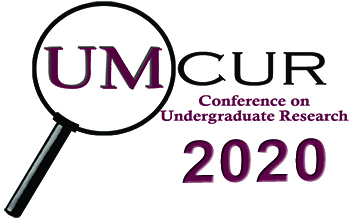Project Type
Presentation
Faculty Mentor’s Full Name
Dr. Ashley Meaux
Faculty Mentor’s Department
Speech, Language, Hearing, & Occupational Sciences
Abstract / Artist's Statement
Early exposure to language-rich environments, including early exposure to literacy, has been linked to academic success. Participating in shared storybook reading with children before they enter elementary school yields lasting results throughout their education. However, for some toddlers are not provided adequate exposure to language-literacy experiences they are at-risk for language-literacy deficits. For these children, speech-language pathologists (SLPs) and preschool teachers can work together to support emergent and early literacy skills. Using a multilinguistic structured approach in reading intervention has been documented effective for children who. exhibit difficulty learning to read. This approach includes simultaneous delivery of multiple linguistic skills (i.e., phonemic awareness, letter-sound correspondences, orthographic representations, meaningful units, word order, and word meaning). However, limited research exists to support an educationally collaborative service delivery model using a structured literacy approach for students’ emergent literacy skills in a classroom-based environment. Members of the Promoting Language Literacy Acquisition-Interaction in Youth (PLLAY) Lab will participate in a collaborative project with local preschool teachers through the Bringing Early Awareness to Reading: Collaboration Using Books and Stories (BEAR CUBS) training program. PLLAY Lab members will work collaboratively with two preschool teachers to model and provide feedback during shared storybook reading using a structured literacy approach for 6 weeks. A single-subject research design will be used for two dependent variables: teacher facilitation of shared storybook reading and student interaction with the teacher and storybook. We will draw conclusions about the benefits of collaborative practice between SLPs and preschool teachers on toddlers’ language development and storybook interaction following the BEAR CUB training program. These conclusions can inform future collaborative practices between SLPs and preschool teachers to deliver the most effective shared storybook experiences to yield greater use of multiple linguistic skills to better prepare at-risk toddlers for academic readiness.
Category
Social Sciences
Interactive Storybook Reading through Preschool Collaborations to Improve Literacy and Academic Readiness
Early exposure to language-rich environments, including early exposure to literacy, has been linked to academic success. Participating in shared storybook reading with children before they enter elementary school yields lasting results throughout their education. However, for some toddlers are not provided adequate exposure to language-literacy experiences they are at-risk for language-literacy deficits. For these children, speech-language pathologists (SLPs) and preschool teachers can work together to support emergent and early literacy skills. Using a multilinguistic structured approach in reading intervention has been documented effective for children who. exhibit difficulty learning to read. This approach includes simultaneous delivery of multiple linguistic skills (i.e., phonemic awareness, letter-sound correspondences, orthographic representations, meaningful units, word order, and word meaning). However, limited research exists to support an educationally collaborative service delivery model using a structured literacy approach for students’ emergent literacy skills in a classroom-based environment. Members of the Promoting Language Literacy Acquisition-Interaction in Youth (PLLAY) Lab will participate in a collaborative project with local preschool teachers through the Bringing Early Awareness to Reading: Collaboration Using Books and Stories (BEAR CUBS) training program. PLLAY Lab members will work collaboratively with two preschool teachers to model and provide feedback during shared storybook reading using a structured literacy approach for 6 weeks. A single-subject research design will be used for two dependent variables: teacher facilitation of shared storybook reading and student interaction with the teacher and storybook. We will draw conclusions about the benefits of collaborative practice between SLPs and preschool teachers on toddlers’ language development and storybook interaction following the BEAR CUB training program. These conclusions can inform future collaborative practices between SLPs and preschool teachers to deliver the most effective shared storybook experiences to yield greater use of multiple linguistic skills to better prepare at-risk toddlers for academic readiness.
